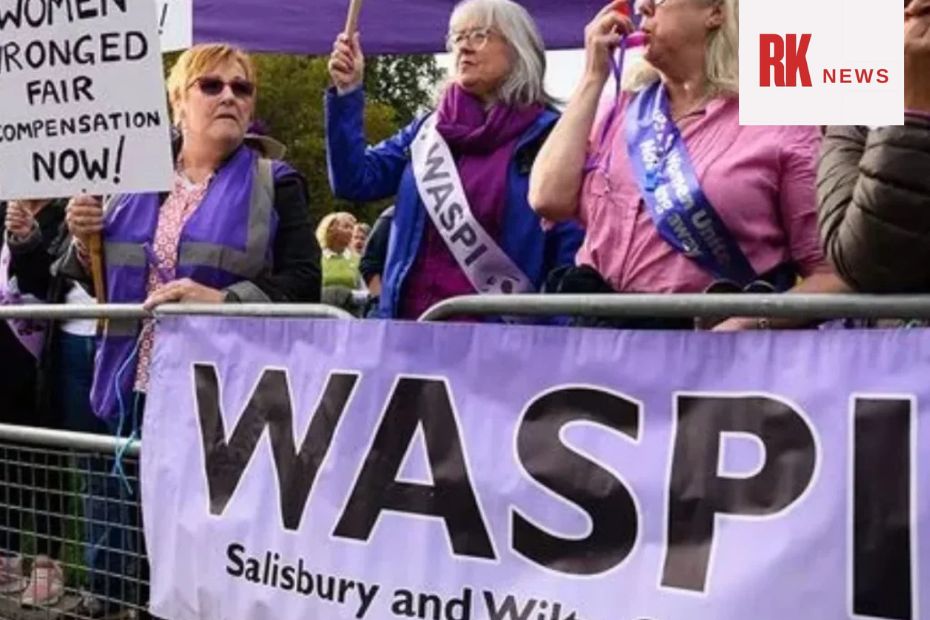London, UK – The long-awaited resolution to the WASPI (Women Against State Pension Inequality) campaign has arrived, but not in the way many had hoped.
Despite recommendations from the Parliamentary and Health Service Ombudsman (PHSO) for a £3,150 compensation for women whose retirement plans were disrupted by changes to the State Pension age, the UK Government has officially rejected the idea of issuing any compensation.
This decision, made in December 2024, marks the latest chapter in the ongoing struggle faced by thousands of women born between 1950 and 1960, who were inadequately informed about increases in their pension age.
The change, which extended the State Pension age for many women from 60 to 66, has left a lasting impact on the retirement plans of many who now find themselves waiting years longer to access their pensions.
What Is WASPI and Why Are These Women Affected?
WASPI refers to women who were born between April 6, 1950, and April 5, 1960, and were not properly informed about the changes to their pension age.
These women were originally expecting to retire at age 60 but were suddenly faced with the reality of waiting until they were much older, causing financial and emotional strain.
The government’s decision to equalize the pension age for men and women, while rooted in a desire for fairness, was poorly communicated, leaving many in a difficult position. Many women found themselves out of work, unable to return due to age or health issues, and struggling to make ends meet.

What Compensation Was Recommended?
In response to the overwhelming complaints from affected women, the Parliamentary and Health Service Ombudsman (PHSO) launched an investigation.
The PHSO’s report concluded that the Department for Work and Pensions (DWP) failed to communicate the changes in a timely and effective manner, a form of “maladministration.” The Ombudsman suggested compensation for these women, with payouts ranging from £1,000 to £2,950, and in some cases, as high as £3,150 for those who suffered the most hardship due to the lack of notice.
Why Did the UK Government Reject Compensation?
Despite the PHSO’s recommendation, the UK Government, under Secretary of State for Work and Pensions Liz Kendall, officially announced in December 2024 that no compensation would be provided. The reasoning behind the decision was that the government believed most women were aware of the changes or had sufficient time to adjust. Furthermore, they argued that calculating and distributing compensation would be too complex and open to disputes.
This response has sparked criticism from advocacy groups, opposition MPs, and the public, many of whom feel that the government is failing to take responsibility for its poor handling of the situation.
Who Would Have Been Eligible for the £3,150 Compensation?
Had the government agreed to compensation, the criteria would have included women born between April 6, 1950, and April 5, 1960, who were not adequately informed about the changes and experienced financial difficulties due to the delayed pension age.
This group includes women like Janet, 62, from Manchester, who had planned her retirement at age 60 but was forced to wait until age 66, leaving her without income and struggling to find suitable work.
What Can Affected Women Do Now?
While the government’s refusal to issue compensation is a setback, all hope is not lost. Here’s what women can do next:
Contact Your MP: Many MPs continue to support WASPI women and are pushing for the government to reconsider. Writing to your local MP and sharing your story could add pressure for change.
Join Support Groups: Organizations like WASPI Campaign 2018, BackTo60, and Women Against State Pension Injustice continue to lobby for fair treatment. Joining these groups can offer support, resources, and updates on ongoing efforts.
Monitor Legal Developments: Changes in government or policy could reopen the conversation on WASPI compensation. Keep an eye on updates from the PHSO and reliable news outlets.
Seek Financial Assistance: If you’re struggling financially, there are other benefits available, such as Pension Credit, Universal Credit, and Housing Benefit. Visit GOV.UK for eligibility details.
Consult Financial Advisors: A financial advisor can help you navigate your options and secure your financial future, even if you’ve been impacted by the pension age changes.
Real-Life Impact: Janet’s Story
Janet, a 62-year-old from Manchester, is one of the thousands of women who had her retirement plans thrown into disarray. Janet left her job at 59, expecting to retire at 60, only to discover that she would have to wait until 66 for her State Pension. With few options, Janet had to take on physically demanding work to make ends meet, a situation shared by many women across the UK.
What Lies Ahead for WASPI Women?
The UK Government’s decision not to issue compensation for the affected women is disappointing, but it has not ended the WASPI movement.
Advocacy continues, and political support remains strong among certain parties and MPs who are determined to hold the government accountable for the lack of communication and support.
The WASPI campaign may have faced a setback, but its mission for justice, fairness, and transparency is far from over. For women who have been impacted, there are still paths forward through support, advocacy, and alternative financial assistance.
FAQs about WASPI Compensation
Is compensation being paid out?
No, the UK Government has officially stated it will not issue any compensation to WASPI women.
How do I know if I am eligible for WASPI compensation?
If you were born between April 6, 1950, and April 5, 1960, and were not adequately informed about changes to your State Pension age, you are considered a WASPI woman.
What can I do now?
Join support groups, contact your MP, stay updated on legal developments, and explore alternative financial assistance options.
